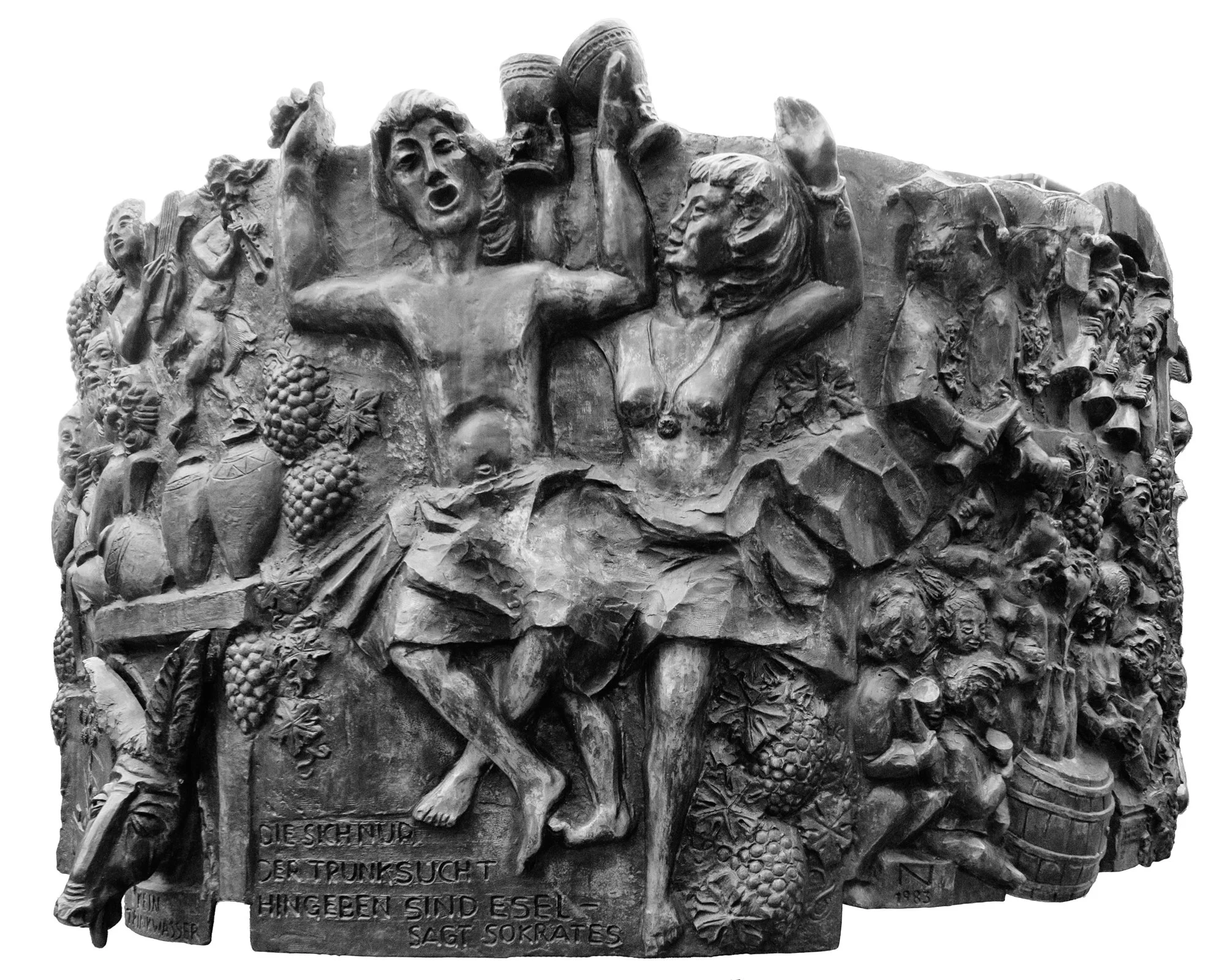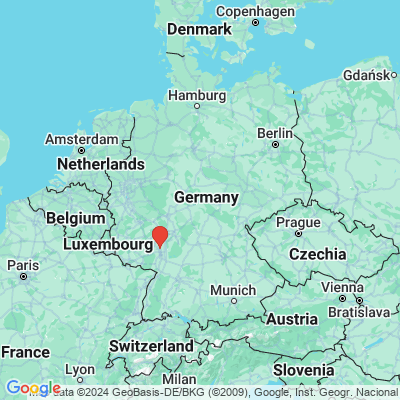Der Winzerbrunnen, 1983, by Gustav Nonnenmacher (Worms, Germany).
In downtown Worms you might come across a statue bearing the inscription: “Die sich nur der Trinksucht hingeben sind Esel, sagt Sokrates.” (In English: “Those who give themselves only to drunkenness are donkeys, says Socrates.”)
The message is as brisk as a Rhineland winter. A life reduced to alcohol is a life misused. The donkey—patient yet stubborn—embodies the very opposite of the reason and moderation Socrates championed.
It is an ancient Greek ideal recast as street wisdom, perfectly at home in a wine-loving city that also prizes learning and debate. In short: let reason, not drink, hold the reins.




